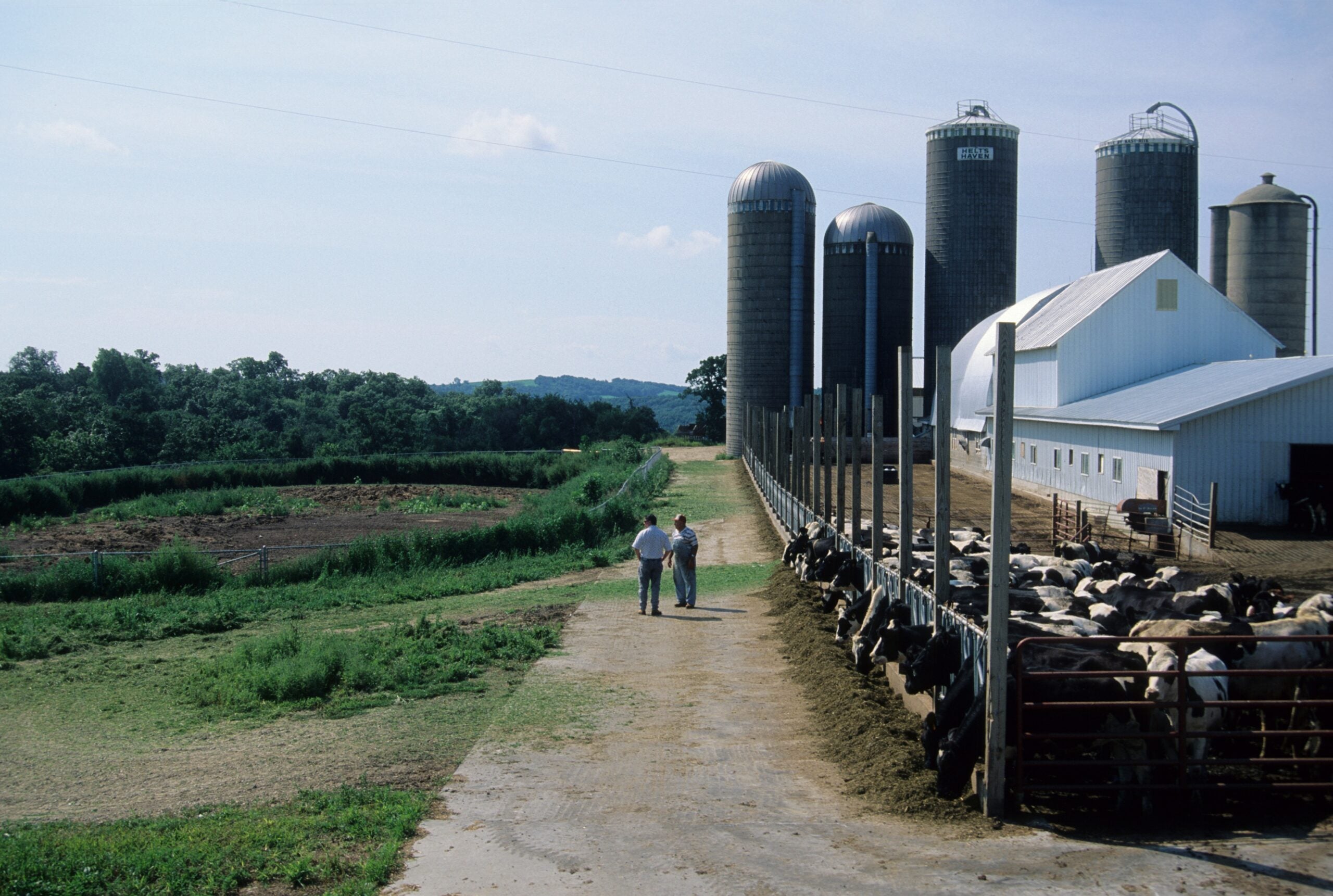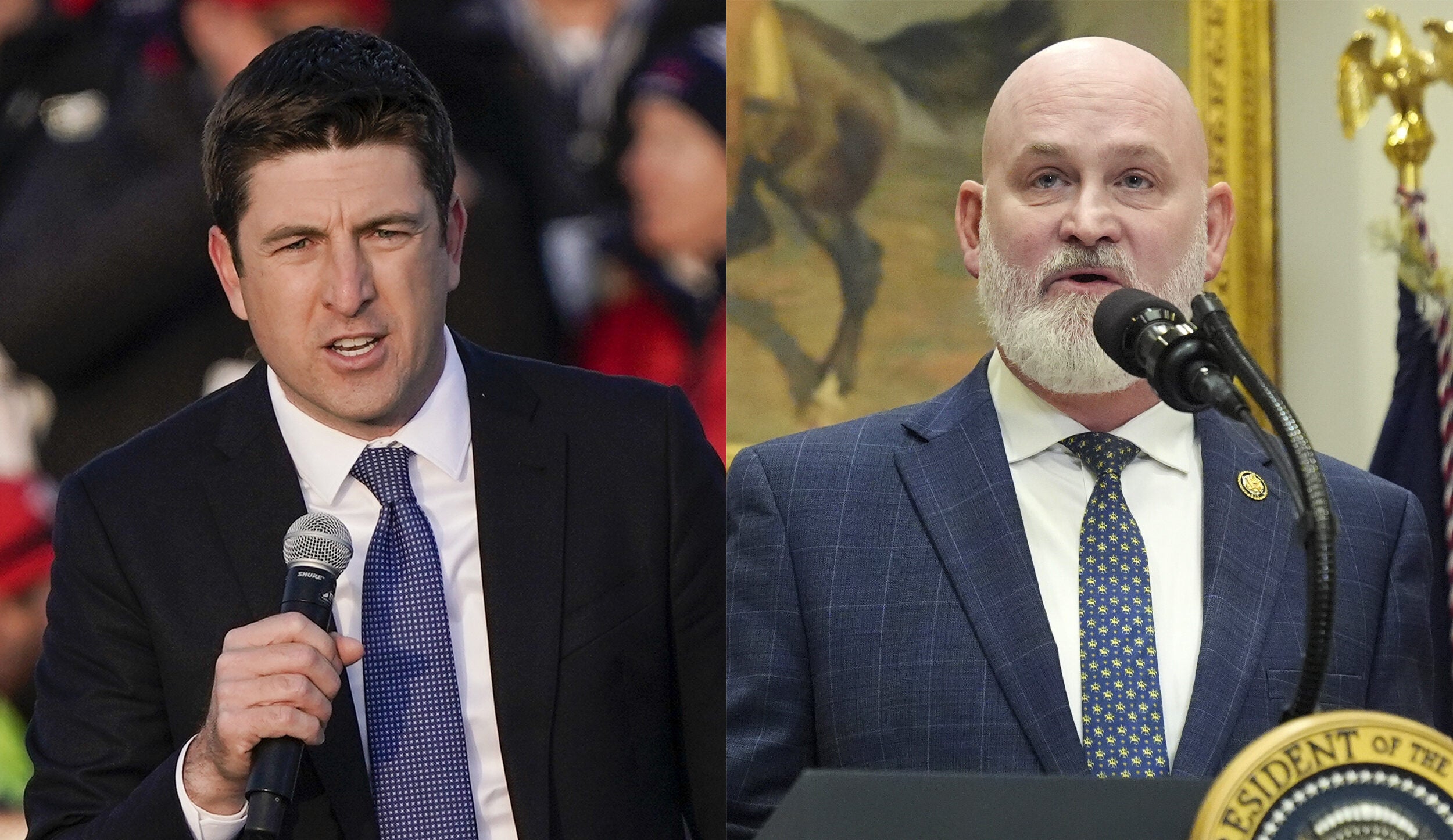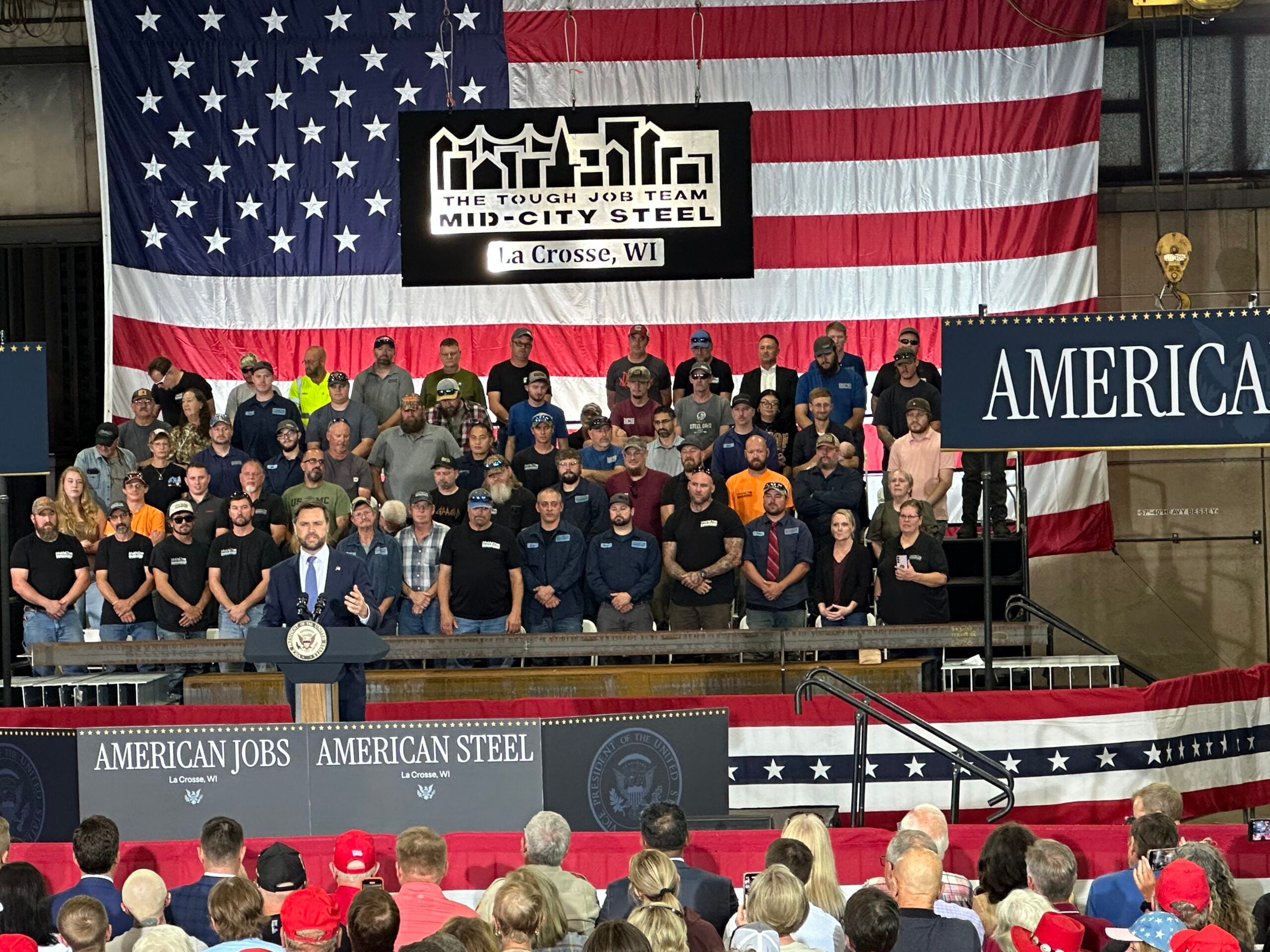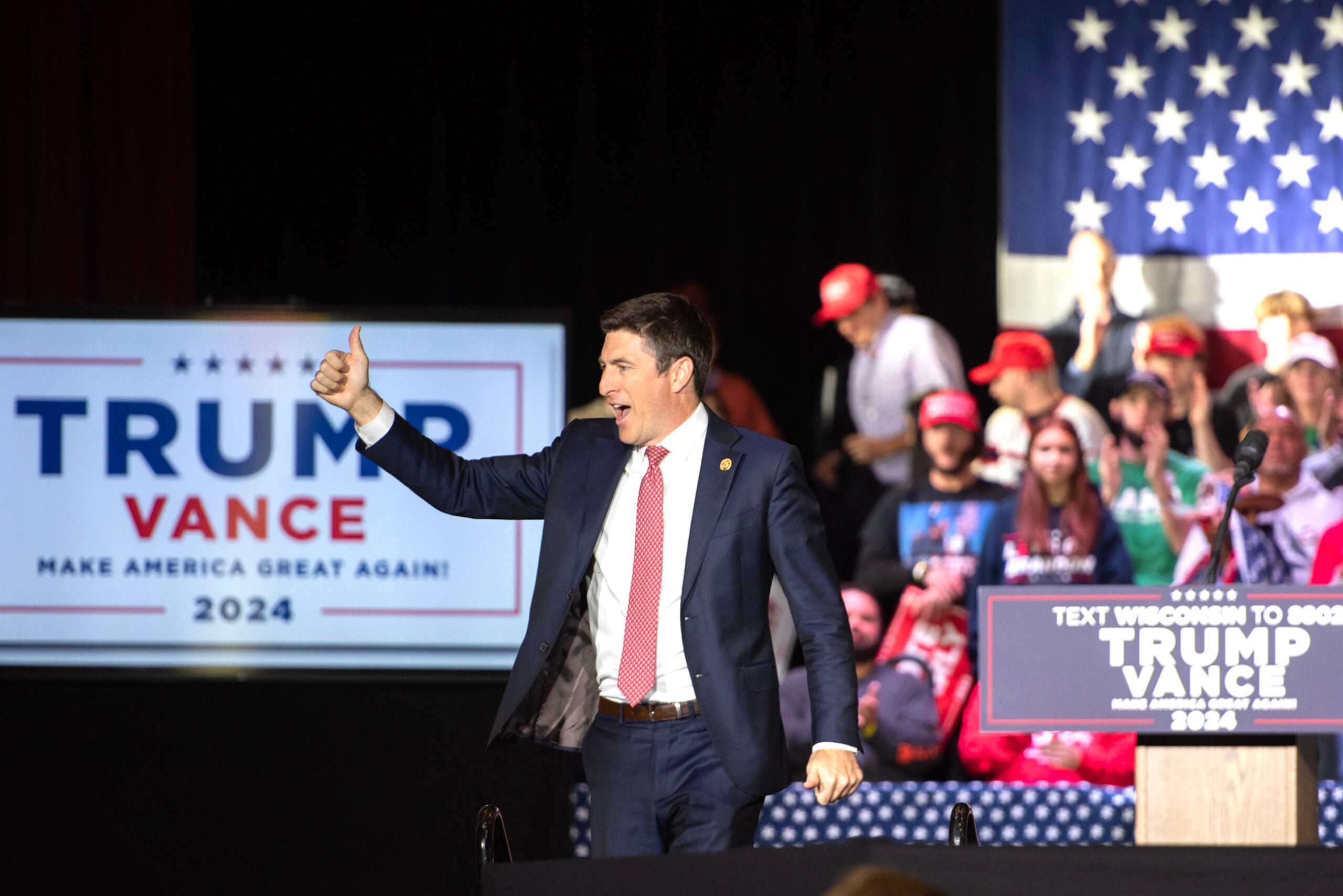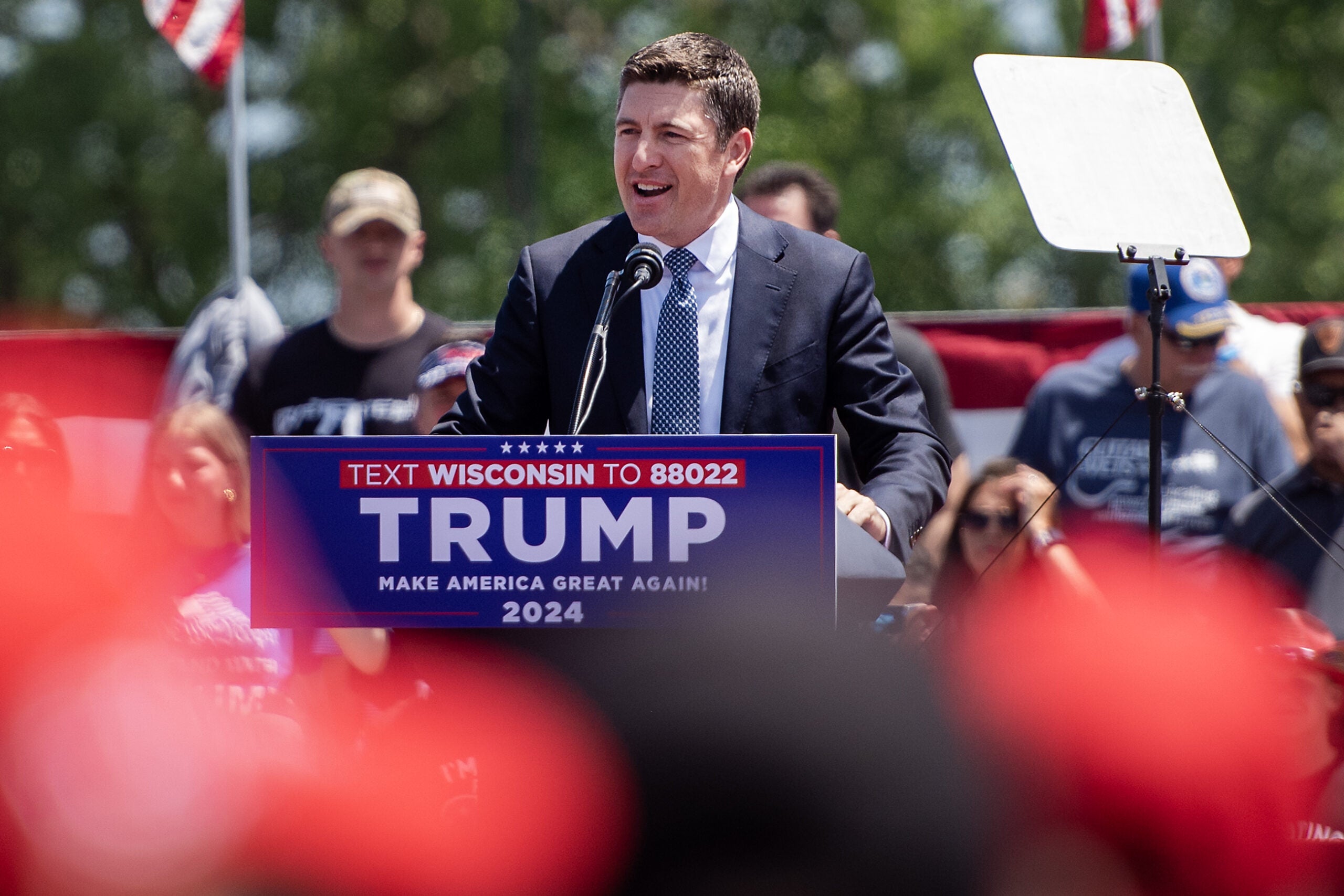For rural Wisconsin residents, receiving and paying for adequate health care can be a challenge. We hear from an organization formed in 2004 that focuses on the needs of farmers and rural communities. We also continue our series of interviews with candidates and hear from 1st Congressional District candidate Bryan Steil and 5th Congressional District candidate James Sensenbrenner Jr.
Featured in this Show
-
Bryan Steil Promises To Protect Medicare, Social Security
Vowing to protect Medicare and Social Security as “promises” to seniors and retirees that should be kept, Brian Steil is hoping to clinch the vote for the 1st Congressional District seat vacated by U.S. Rep. Paul Ryan in the upcoming election.
Steil, an attorney for manufacturing companies who serves on the University of Wisconsin System Board of Regents, said the country’s parties need to come together to figure out how to make those programs sustainable for generations to come. Moreover, the country’s spending needs to be reined in to ensure dollars exist for assistance programs, Steil told WPR’s “The Morning Show” host John Munson.
Endorsed by Ryan and winning the primary election, Steil faces Democratic challenger Randy Bryce on Tuesday, Nov. 6 for the southeastern Wisconsin district, which covers all of Kenosha and Racine counties, and parts of Milwaukee, Rock, Walworth and Waukesha counties.
This interview has been edited for brevity and clarity.
John Munson: A lot of people see this not as a race to elect a new Congress person, but as a race to replace the current occupant of the seat, House Speaker Paul Ryan, who’s retiring. With you, are voters getting a new candidate with new ideas or another Paul Ryan?
Bryan Steil: As I look at this race, everybody brings their own background to the table. I’d worked for the past 10 years in the private sector for local manufacturing companies here in Rock County. I’ve been on the front line of decisions addressing lowering the costs of health care and working toward high-wage jobs here in my home community.
As far as my work with the University of Wisconsin Board of Regents, I think that brings something new to the table — a true background in education.
JM: Senate Majority Leader Mitch McConnell recently said the only way to lower that deficit would be to cut social safety net programs like Medicare, Medicaid and Social Security. That’s something that Paul Ryan had talked about doing as well. Is that something that you’re willing to accept?
BS: Medicare and Social Security are promises we made to seniors. Those are promises we need to keep. There should be no changes.
As you look to that generation much further down — my generation and younger — it’s an approach of how do we pull together a bipartisan review to determine how can we make these programs sustainable for future generations? But for the generation that’s in retirement and approaching retirement age, we don’t need to cut or negatively impact those individuals.
And part of that is why I’m so focused on government spending across the board, to make sure that our spending is in line so that we can honor that promise that we made to seniors for those in particular in retirement now and approaching retirement age.
JM: Let’s talk about health care. During the last session, we saw a failed attempt at repealing the Affordable Care Act followed by changes to the law. In your view, what needs to happen with that law and with health care in general?
BS: We need to lower the costs of health care. The Affordable Care Act, or Obamacare, drove up the cost and made health care less affordable and thus less accessible to hardworking families here in Wisconsin.
What we need to do is work toward a program of health care that puts individuals and doctors in charge of the decision-making process so that they can increase quality and lower the cost to health care.
I think that stands in stark contrast to my opponent who supports a government takeover of health care, and that’s going to drive up the cost of health care.
Individuals with pre-existing conditions need to be protected and need to be covered. I’ve been clear on that since day one. You can go in and address the disaster that is Obamacare, but still at the same time protect people with pre-existing conditions.
JM: What do you think is one of the biggest issues affecting your district and how would you work to tackle it in Congress?
BS: We have a skills gap; to make sure that individuals have the skills they need to be ready to go into the workforce to earn a higher wage.
And so as I look at the federal government, using my background on the University of Wisconsin Board of Regents, there is a real opportunity to move the decision-making from Washington back to local educators, back to your local school board, back to the University of Wisconsin Board of Regents, back to your technical college board.
I think that’s at the forefront of what needs to be the next step now that we’ve gotten the economy moving along at the rate we do.
-
1st Congressional District Interview: Bryan Steil
We continue our series of interviews with the candidates running for Wisconsin’s 1st Congressional District seat, which covers the southeastern part of the state. The seat is currently held by House Speaker Paul Ryan, who is retiring. We talk with Bryan Steil, the Republican candidate looking to replace Ryan.
-
Rural Health Initiative Responds To Farmer's Challenges
Farmers in rural Wisconsin often struggle with access to healthcare due to lack of providers, distance to facilities, and the unaffordability of health insurance. The Rural Health Initiative was formed in 2004 to address some of those barriers. We talk with the Rural Health Initiative Executive Director about the components of the program and how it is expanding.
-
Candidate for Congress, District 5 – Representative Jim Sensenbrenner
As part of WPR’s ongoing election coverage we are featuring interviews with candidates on the 2018 midterm ballot. This week we’re talking with candidates for Wisconsin’s 5th Congressional District. U.S. Congressman Jim Sensenbrenner represents Wisconsin’s 5th District. He was elected to the position in 1978 and is running as a Republican for his 21st term. He is running against Democrat Tom Palzewicz.
Episode Credits
- John Munson Host
- Chris Malina Producer
- Jana Rose Schleis Producer
- U.S. Rep. Bryan Steil Guest
- Rhonda Strebel Guest
- James Sensenbrenner Guest
- Sarah Hopefl Technical Director
Wisconsin Public Radio, © Copyright 2026, Board of Regents of the University of Wisconsin System and Wisconsin Educational Communications Board.

